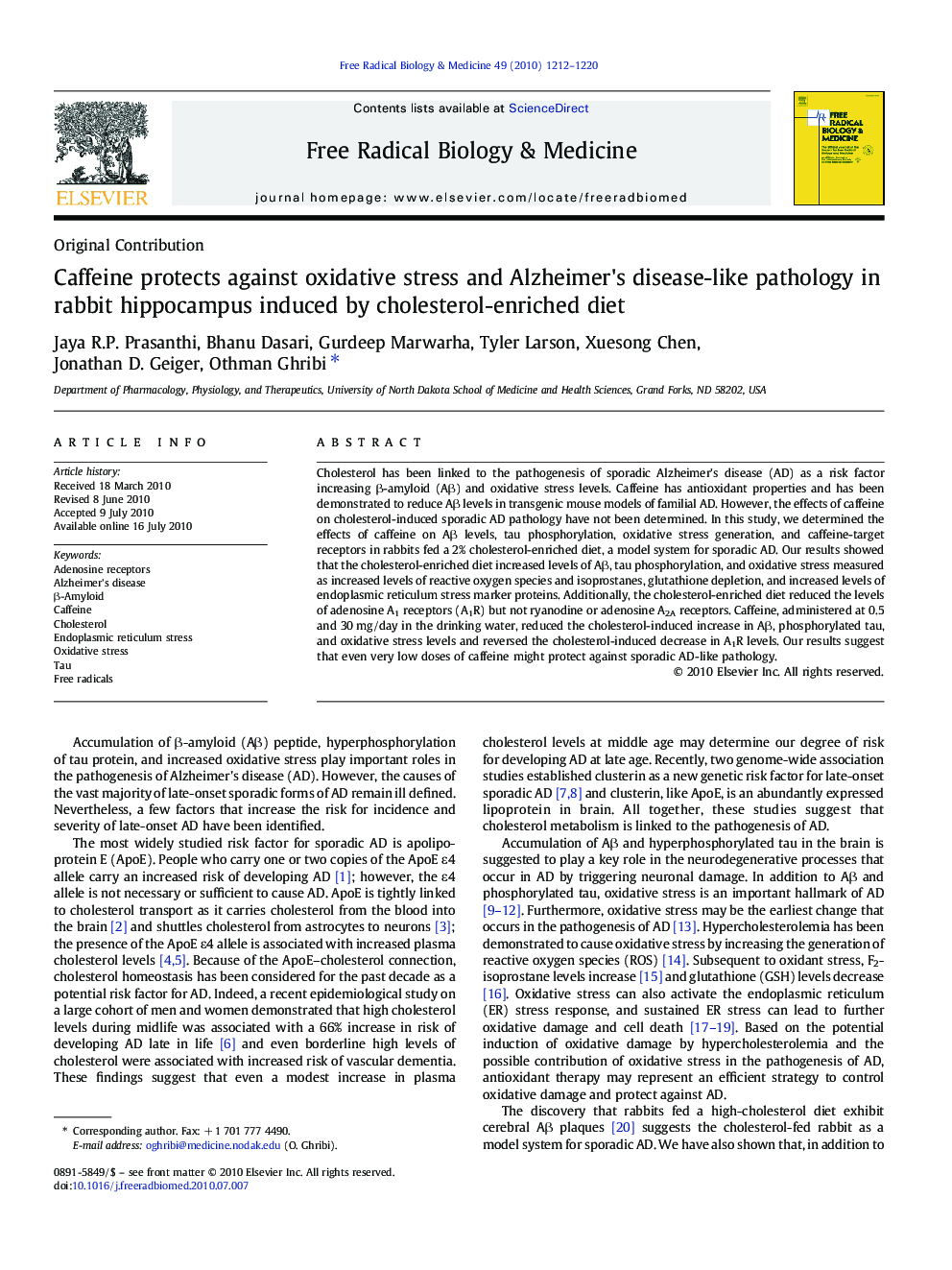| Article ID | Journal | Published Year | Pages | File Type |
|---|---|---|---|---|
| 1909129 | Free Radical Biology and Medicine | 2010 | 9 Pages |
Cholesterol has been linked to the pathogenesis of sporadic Alzheimer's disease (AD) as a risk factor increasing β-amyloid (Aβ) and oxidative stress levels. Caffeine has antioxidant properties and has been demonstrated to reduce Aβ levels in transgenic mouse models of familial AD. However, the effects of caffeine on cholesterol-induced sporadic AD pathology have not been determined. In this study, we determined the effects of caffeine on Aβ levels, tau phosphorylation, oxidative stress generation, and caffeine-target receptors in rabbits fed a 2% cholesterol-enriched diet, a model system for sporadic AD. Our results showed that the cholesterol-enriched diet increased levels of Aβ, tau phosphorylation, and oxidative stress measured as increased levels of reactive oxygen species and isoprostanes, glutathione depletion, and increased levels of endoplasmic reticulum stress marker proteins. Additionally, the cholesterol-enriched diet reduced the levels of adenosine A1 receptors (A1R) but not ryanodine or adenosine A2A receptors. Caffeine, administered at 0.5 and 30 mg/day in the drinking water, reduced the cholesterol-induced increase in Aβ, phosphorylated tau, and oxidative stress levels and reversed the cholesterol-induced decrease in A1R levels. Our results suggest that even very low doses of caffeine might protect against sporadic AD-like pathology.
